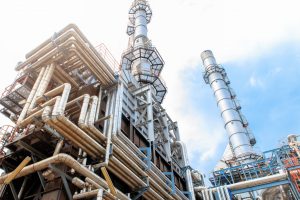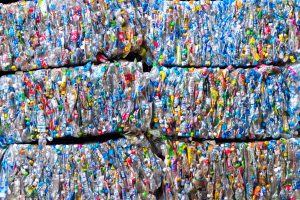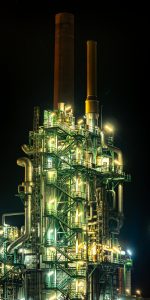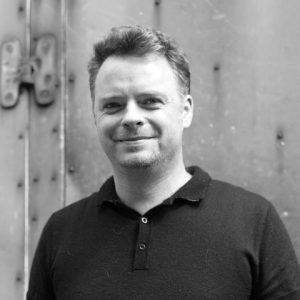
Jonathan Cullen (Project Lead)
Jonathan Cullen is a Professor of Sustainable Engineering at the University of Cambridge. He leads the Resource Efficiency Collective and has a reputation for top-down studies of resource systems, bringing skills in developing new metrics to reflect both energy and material consequences of materials production.
Jonathan’s research interests span energy and material systems, efficiency limits, circularity and zero carbon transition pathways. He led the project C-THRU: carbon clarity in the global petrochemical supply chain (c-thru.org) and has been a co-investigator on: CCG: Climate Compatible Growth (climatecompatiblegrowth.com), TransFIRe (transfire-hub.org), S2uPPlant, and UK FIRES (ukfires.org). He was a Lead Author for the IPCC AR6 Industry Chapter and co-authored the book Sustainable Materials: with both eyes open, which pioneered the concept of material efficiency for energy-intensive industries.

David Allen (Investigator)
Dr David Allen is a Regents Professor in Chemical Engineering at the University of Texas at Austin. He is Director of the Center for Energy and Environmental Resources, a group of approximately 100 graduate student, faculty and staff researchers working in areas of chemical process science and technology, and atmospheric emissions. He has led large air quality field studies aimed at quantifying, through direct measurements, greenhouse gas emissions for oil and natural gas supply chains. He has also developed models of material and energy flows within the US chemical industry and used those models to characterize the transformation of chemical manufacturing in the United States from petroleum to natural gas liquid feedstocks. His current work is applying these material and energy balance models to assess systems scale impacts of increased circularity in plastics manufacturing. He has served as an advisor for U.S. federal, state and local governments and from 2012 to 2015 chaired the U.S. Environmental Protection Agency’s Science Advisory Board.
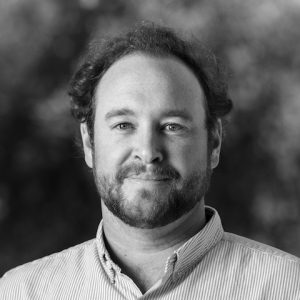
Phillip Christopher (Investigator)
Dr Phillip Christopher is an Associate Professor in the Chemical Engineering Department and the Mellichamp Chair in Sustainable Manufacturing, at UC Santa Barbara. He has published > 60 papers in top venues in the areas of heterogeneous catalysis, photocatalysis, sustainable chemical production and conversion, and mechanistic insights into catalytic processes. He currently serves as a Senior Editor for the journal ACS Energy Letters and as the Chair of the Pacific Coast Catalysis Society. Prof. Christopher’s research has been recognized with various awards including the Young Scientists Award from the International Congress on Catalysis, Army Research Office Young Investigator Award, NSF Early CAREER Award, the Presidential Early Career Award for Scientists and Engineers (PECASE), and the Early Career Award in Catalysis from the Catalysis Science and Technology Division of the American Chemical Society. Prior to his current position, from 2011-2017 he was an Assistant Professor at University of California, Riverside in the Chemical and Environmental Engineering Department. He received his B.S. from UC Santa Barbara in 2006 and his M.S and Ph.D. from University of Michigan in 2011, all in Chemical Engineering.
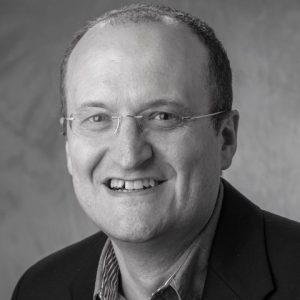
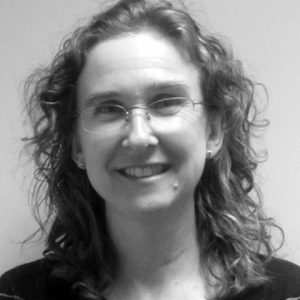
Chris and Penny Hamlin (Investigators)
Chris Hamlin and Penny Hamlin are consultants from HancockHamlin Ltd (HH) specializing in automation and digital transformation strategies in the process manufacturing sector, and sustainable business strategies for manufacturing businesses and service providers. Chris has 30 years of experience in large manufacturing companies, and a track record of improving manufacturing performance and commercial operations across the process industries. Recently appointed Fellow of the Royal Academy of Engineering, and a long-standing fellow of the IChemE, Chris has both relevant industry expertise and knowledge of leading sustainability and resource efficiency concepts. Penny has established expertise in process industry market dynamics and detailed understanding of the impact of technology and sustainability on business profitability. She also has a proven ability to communicate complex ideas to business leaders and create technical marketing collateral suitable for non-technical audiences.
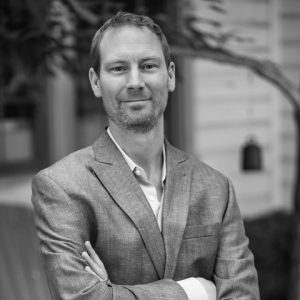
Carey King (Investigator)
Dr Carey King is a Research Scientist at the University of Texas at Austin and Assistant Director at the Energy Institute. He also has appointments within the Jackson School of Geosciences and the McCombs School of Business. He has both a B.S. with high honors and Ph.D. in Mechanical Engineering from the University of Texas at Austin. Carey performs interdisciplinary research related to how resource systems interact within the economy and environment as well as how our policy and social systems can make decisions and trade-offs among these often competing factors. He has led two interdisciplinary projects at the Energy Institute: The Full Cost of Electricity (FCe); the Energy Infrastructure of the Future (EIoF). Both projects involve open-source online decision support and educational platforms. The EIoF project will culminate (Summer 2020) in an open-source online tool that allows users to choose future energy scenarios and see the cost and CO2 emissions impacts. His latest research on macroeconomic modelling links physical resources extraction and consumption to monetary flows, including debt, to better understand dynamics among physical flows (energy, natural resources) and money flows (GDP, interest, wages). This work helps explain the post-1970 wage share decline in the U.S. and other OECD countries.

Rick Lupton (Investigator)
Dr Rick Lupton is a Lecturer in Mechanical Engineering at the University of Bath. His work focuses on understanding dynamic systems, ranging in scale from the behavior of wind turbine blades to global production and consumption of steel, using modelling, data analysis, Bayesian inference and data visualization. He is an investigator on the £5.2m program grant “UK FIRES: locating Resource Efficiency at the heart of Future UK Industrial Strategy”, where he is leading work to transparently integrate disparate data on resource use using semantic technologies. Uncertainty is a key part of his work – as a means to communicate confidence in results, and as a tool to identify knowledge gaps and reconcile conflicting data sources. He is a member of the Industrial Ecology Open Science working group and the author of several open-source software tools aiming to support transparent and reproducible analysis of resource use and emissions.

Eric Masanet (Investigator)
Dr Eric Masanet is Professor and Mellichamp Chair of Sustainability Science for Emerging Technologies at the University of California, Santa Barbara and Adjunct Professor of Chemical and Biological Engineering at Northwestern University. He leads the Industrial Sustainability Analysis Laboratory, which develops mathematical models to quantify opportunities for reducing energy and resource use in industrial technology systems. From 2015-2017, he led the Energy Demand Technology Unit at the International Energy Agency, overseeing decarbonization technology analyses for the global buildings, transport, and industrial sectors (inclusive of petrochemicals). He has conducted numerous energy, life-cycle, and economic analyses of advanced petrochemical process technologies for the U.S. Department of Energy and U.S. Environmental Protection Agency. He is the former Editor in Chief of Resources, Conservation and Recycling, the leading peer-reviewed journal on sustainable resource systems. He is currently a Lead Author for the IPCC AR6 Demand Chapter, and a Research Advisory Board Member at the American Council for an Energy Efficient Economy. He holds a PhD in Mechanical Engineering from the University of California, Berkeley with a specialisation in sustainable manufacturing systems.
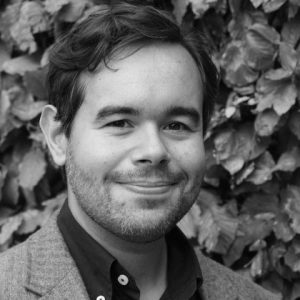
André Cabrera Serrenho (Investigator)
Dr André Cabrera Serrenho is an Assistant Professor and University Lecturer in Engineering, Environment and Sustainable Development at the University of Cambridge. His research explores new ways of reducing greenhouse gas emissions at a faster pace to meet international climate pledges. This involves identifying new configurations of energy and material systems to supply our future needs with less demand and emissions. André has been involved in the development of exergy-based analysis of national energy systems and new characterizations of material stocks to allow exploration of efficient material service provision. He has been working on the identification of opportunities for energy and material demand reduction in industrial systems. He developed dynamic material flow analyses to assess the stocks of cars, buildings, and plastics in the UK, testing the impact of alternative interventions to reduce global greenhouse gas emissions.
Researchers
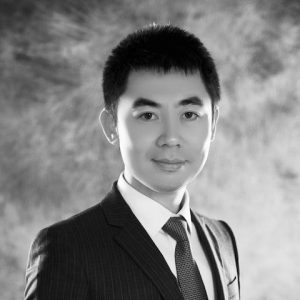
Yunhu Gao
Yunhu Gao is a research assistant in the Department of Engineering at the University of Cambridge, working with Dr André Cabrera Serrenho, on resource efficiency in plastics and petrochemical systems. He pursued his PhD degree in the Department of Chemical Engineering and Biotechnology at the University of Cambridge from 2017 to 2021. His PhD focused on the design of flow reactors for the continuous production of nanoparticles, with an emphasis on the effect of mixing. He worked as the technical director in Jiangsu Huayi Technology Co., Ltd., being responsible for designing and building production lines for Oxygen-18 isotope separation. Yunhu received his Master’s degree and Bachelor’s degree from Tsinghua University in 2014 and 2011, respectively.
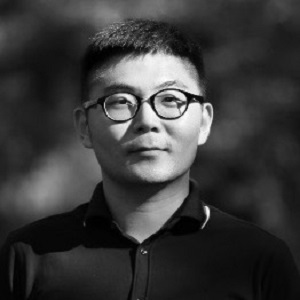
Enze Jin
Enze Jin is a postdoctoral fellow at the Bren School of Environmental Science & Management at the University of California, Santa Barbara, working with Dr. Eric Masanet, on the process energy and GHG emissions for chemical production stage of the C-THRU project. He earned his Ph.D. degree in Environmental and Ecological Engineering from Purdue University in 2019. His research interests focus on the assessment of sustainability performance for agricultural, food, and bioenergy systems by integrating the environmental and socioeconomic impacts. He has years of experience in system modeling for industrial sustainability using life cycle assessment, techno-economic analysis, and system dynamics. Before joining the group at UCSB, Enze worked as a postdoctoral researcher at the University of Delaware (UD) for one year and he played a leading role in analyzing and mapping the energy footprint of food production at UD.
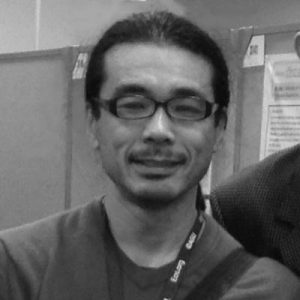
Yosuke Kimura
Yosuke Kimura is a member of research staff at the Center for Energy and Environmental Resources at the University of Texas at Austin, working with Dr. David Allen. His research focuses on air quality modelling, emission modelling for both GHG and photochemical precursors, network modelling of chemical manufacturing and energy resources. Yosuke has a PhD in civil engineering from the University of Texas at Austin.
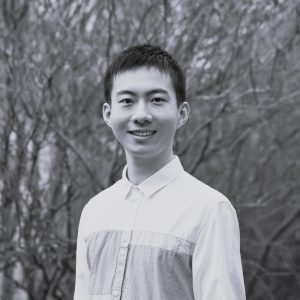
Zhichao Chen
Zhichao Chen is a research staff at the Center for Energy and Environmental Resources at the University of Texas at Austin, working with Dr. David Allen. He earned his PhD degree in Chemical Engineering from the University of Texas at Austin. His research interests focus on emission modelling for oil and gas supply chain, life cycle assessment, and network modelling of chemical manufacturing and energy resources.

Neeraj Hanumante
Dr Neeraj Hanumante is a postdoctoral fellow at the Energy Institute of the University of Texas at Austin. He works with Dr Carey King on the C-THRU project, aiming to help the petrochemical industry with recycling and mitigating GHG emissions through macroeconomic modelling that is informed by physical energy and resource use. Neeraj studied Mechanical Engineering at Nagpur University, India, followed by a Masters in Energy Systems Engineering at the Indian Institute of Technology, Bombay. He then worked as a Scientific Officer for India’s Atomic Energy Regulatory Board before returning for a PhD with ITT Bombay and Monash University, Australia in 2015. He was awarded the prestigious Prime Minister’s Fellowship for Doctoral Research. The PhD used an integrated planetary model to assess the implications of pursuing a circular economy as a means of achieving global sustainability. After completing his PhD, Neeraj worked as a Post-Doctoral fellow at IIT Bombay, focusing on modelling the global water system for the Generalised Global Sustainability Model.

Georgie Wellock
Georgie Wellock is a Research Software Engineer in the Department of Mechanical Engineering at the University of Bath, working with Dr. Rick Lupton on integrating data sources for petrochemical emissions and further development of semantic technology tools. She obtained her PhD in Computational Chemistry from the University of Bath in 2020 with a focus on modelling ionic conductivities in solid state battery materials. Prior to joining the C-THRU project she worked as a Research Software Engineer in the Department of Health with the STOP project, a global tobacco watchdog dedicated to exposing the tobacco industry and strengthening health policy. In this role she developed tools to automate data collection from a range of sources and to implement data analysis methods.
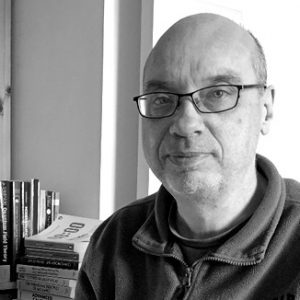
Stephen Boyle
Stephen is a Research Software Engineer in the Department of Mechanical Engineering at the University of Bath. With Dr. Rick Lupton, he is working on the optimization, with respect to missing or conflicting data, of a model of material flow in the petrochemical industry and the visualization of material flow and emissions between processes. Stephen obtained his PhD in 2022 from the University of Bristol where he worked on MultiDrone, an international project developing a multiple drone platform for use in filming sports events. His work focussed on the optimization of camera shots and the optimization of photogrammetry scans used for producing environment models incorporated in flight planning software. Previously Stephen has worked as an IT support engineer and in the technical support of CAD systems.
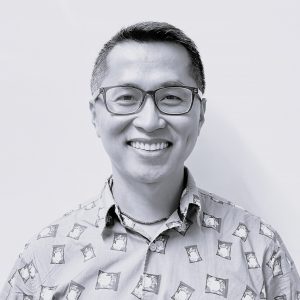
Stephen Doliente
Stephen Salve Doliente is a Research Associate at the University of Bath, working with Dr. Rick Lupton on developing a global petrochemical industry carbon emissions model, while incorporating information and works from C-THRU partners and supporting the application of data-driven material flow analysis methods with accommodation for uncertainty and poor information. He earned his BSc and MSc degrees in Chemical Engineering (2008) and Energy Engineering (2012) at the University of the Philippines Diliman. Before his doctorate, Stephen focused on experimental research into sustainable, circular and/or low-carbon technologies, such as biofuels, nanofluids, waste heat recovery, flue gas desulfurisation, and waste valorisation. He received a PhD in Chemical Engineering (2022) at the University of Bath, with a thesis approved without corrections. The PhD was composed of purely computational research on whole-systems analysis and optimisation of biomass value chains in the Philippines for the greatest economic and environmental benefit. Immediately after his PhD, Stephen joined the UKRI’s Supergen Bioenergy Hub and completed a postdoc on finding pathways to decarbonise the UK’s petrochemical sector using locally-sourced biomass feedstocks.

Dominika Malkowska
Dominika is a research associate at the University of Bath and works with Dr. Rick Lupton to address the challenges posed by uncertainty and limited information in data analysis, with the objective of improving the integrated database of carbon emissions originating from the petrochemical sector. Dominika’s background is in structural engineering, and she is currently in the final stage of her PhD at the University of Bristol, awaiting her viva. Her main interests lie in the field of sustainable construction materials, with a particular emphasis on structural bamboo, which served as the focus of her PhD project. Before embarking on her doctoral studies, Dominika gained industry experience as a structural engineer, specialising in timber design.
Project Coordinator

Joanna Wakeling (Project Coordinator)
Past People
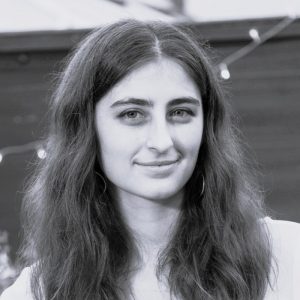
Susie Dobson (Content editor)
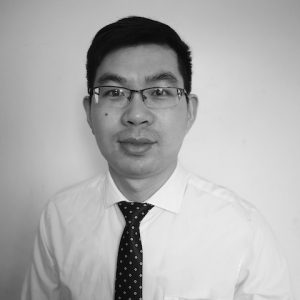
Fanran Meng
Dr Fanran Meng is a postdoctoral research associate at the Department of Engineering at the University of Cambridge, working with Dr Jonathan Cullen, on the critical review and data modelling and uncertainty across petrochemical sectors. Previously, he was a research fellow in Sustainable Material and Technologies at the University of Nottingham. He received his PhD degree in Materials Engineering and Materials Design from the University of Nottingham in 2017. His research focuses on resource efficiency and life cycle sustainability which integrates engineering and science-based disciplines with insights from economic sciences to develop system optimisation and policy relevant strategies. His expertise is in the application of whole systems approaches (life cycle assessment and techno-economic analysis with optimisation algorithm) to renewable energy systems and novel materials. He has been a named investigator on research grants valued at ~£2.2 million. His work has covered a wide range of materials, bioenergy, bioprocesses, and transportation sectors, e.g., carbon fibre composite recycling, plastic recycling, municipal solid waste management, wind turbine blade waste prediction and management, and continuous production of commodity chemicals, lithium-ion EV batteries.

Banafsheh Jabarivelisdeh
Banafsheh Jabarivelisdeh is a postdoctoral fellow at the Institute for Energy Efficiency at the University of California, Santa Barbara, working with Dr. Eric Masanet, on the process energy and GHG emissions for chemical production stage of the C-THRU project. She earned a dual PhD degree in Systems Theory and Automation Control from University of Magdeburg (Germany), joint with the program of Bio-Chemical Engineering from KU Leuven, Belgium in 2021. For her PhD, she worked on model-based process optimisation and control with applications in biotechnological processes, and in particular model predictive control of bio-systems. She has also experiences in chemical process simulation and optimisation, and energy integration modelling for improved process energy and exergy efficiency. From 2015 to 2020, Banafsheh was a graduate researcher at the International Max Planck Research School Magdeburg for Advanced Methods in Process and Systems Engineering (IMPRS), one of the top programs in Germany for international researchers.
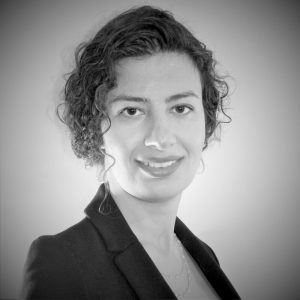
Elham Jahani
Elham Jahani is a postdoctoral fellow at the Energy Institute of the University of Texas at Austin, working with Dr. Carey King, on the economic implications of the C-THRU project. Her research focus is on macroeconomic modelling in order to assess resource systems and their interactions with economy and environment. She received her Ph.D.in Intelligent Infrastructure Engineering from Iowa State University (ISU) in 2020 with a focus on improving city-scale building energy modelling techniques by reducing the computational effort and assessing the impact of energy efficiency programs at the city scale and policies on peak demand and energy use. She earned her Master’s degree in Sustainable Environment and Energy Systems from Middle East Technical University (METU) in 2016. During her studies at METU, she conducted research on renewable energy resources and employing hybrid energy systems for providing clean energy for communities located on islands.
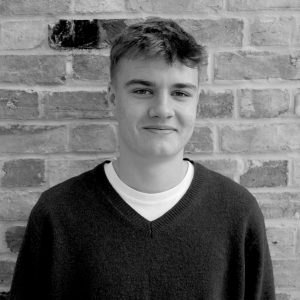
Arthur Poole (Project Assistant)

Ella Jennings
Ella is a Research Assistant working to operationalise the petrochemical industry’s markets Archetype Model that is being developed for C-THRU. She first studied for a BSc in Astrophysics and Geophysics at University College London before moving into engineering, completing the Energy Technologies MPhil at Cambridge University in 2021. For her masters’ thesis she researched energy conversion pathways and their efficiencies through the global energy system, abstracting away from technical devices to the fundamental conversions between energy forms. This research will hopefully be taken further next year in a PhD with Jonathan Cullen and the Resource Efficiency Collective.
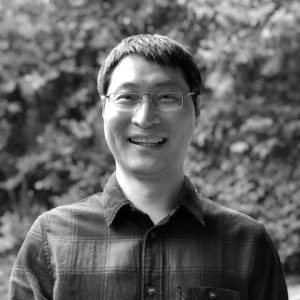
Wei Zhang
Wei Zhang is a research associate in Mechanical Engineering at the University of Bath, working with Dr Rick Lupton and Dr Jonathan Cullen at Cambridge, on developing uncertainty management strategies and tools for resource systems modelling. He obtained his Ph.D. in Mechanical Engineering, with particular focus on understanding Inverse Problems under Uncertainty in China, and then conducted the investigation on uncertainty modelling and global sensitivity analysis for fuel cell stacks in South Korea. Prior to joining the C-THRU team, he worked as a research fellow, at Queen’s University Belfast in the UK, exploring novel concepts in bio-inspired intelligence design system integrated with manufacturing. He has developed computational inverse technologies for modelling and design of advanced materials and structures within uncertain environments. He worked as a computational mechanics engineer in the industrial sector for two years. He was a member of the International Association for Computational Mechanics. He also currently works as an associate editor for the Journal of Mechanical Science and Technology.
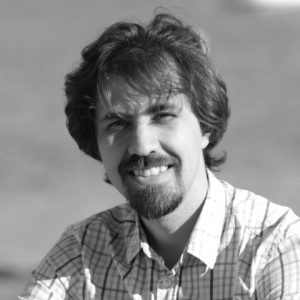
Sajed Sadati
Sajed Sadati is a postdoctoral fellow at the Energy Institute of the University of Texas at Austin, working with Dr. Carey King, on the Economic implications of the C-THRU project. He earned his BSc and MSc degrees in the field of Aerospace Engineering from Amirkabir University of Technology (AUT), Tehran, Iran, in 2008 and 2011, respectively. Because of his interest in studies on sustainable development and renewable energy technologies, he pursued a second masters in Sustainable Environment and Energy Systems program at Middle East Technical University (METU), Turkey, from 2013 to 2016. His research at METU included investigation on applications of energy storage for designing cost effective renewable energy systems. In 2020, He earned a PhD in Civil Engineering from Iowa State University (ISU) with a specialization in sustainable infrastructures. For his PhD, he worked on performance assessment of electrification within the transportation infrastructure and electricity-based processes at airports and highways. He has received several awards during his research at ISU including the Graduate Research Initiative Fellowship in 2017, the Student of the Year Award from Partnership to Enhance General Aviation Safety, Accessibility and Sustainability in 2019 and the Research Excellence Award from ISU in 2020. He also won an Airport Cooperative Research Program Graduate Research Award on Public-Sector Aviation Issues in 2018, preparing research on “Impact of Utilizing Electric Ground Power Systems on the Airport Electricity Demand Profile.”
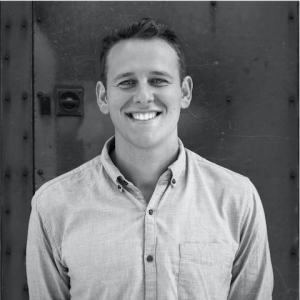
Robert Flicker
Robert is a Research Assistant researching carbon clarity in the global petrochemical supply chain. He studied Chemical and Process Engineering at the University of Western Australia. Robert has over five years of experience consulting in the energy and resources sector and working with the Australian Federal Government to improve supply chain policy. In 2020 Robert completed the MPhil in Engineering for Sustainable Development at the University of Cambridge and is applying for a PhD with Resource Efficiency Collective focusing on investigating emissions transparency in the petrochemical supply chain.
